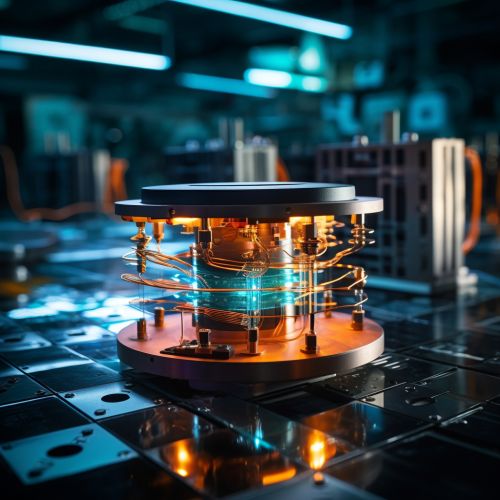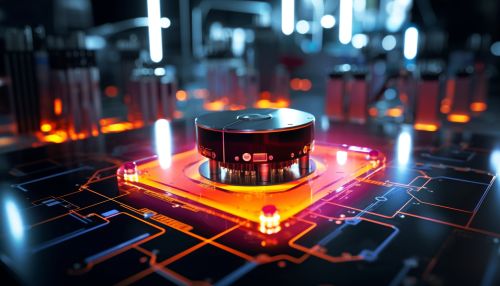Quantum Memory
Introduction
Quantum memory refers to the process of storing quantum information in a quantum state of a physical system. This information can be retrieved at a later time, making quantum memory a key component of quantum computing and quantum communication systems.


Quantum Information
Quantum information differs from classical information in that it is based on the quantum mechanical properties of particles such as photons and electrons. The fundamental unit of quantum information is the qubit, which, unlike a classical bit, can exist in a superposition of states, allowing it to represent both 0 and 1 simultaneously.
Quantum Memory Systems
There are several different types of quantum memory systems, each with their own advantages and disadvantages. These include quantum dot systems, nitrogen-vacancy center systems, ion trap systems, and superconducting circuit systems.
Quantum Dot Systems
Quantum dot systems use tiny semiconductor particles to store quantum information. These systems have the advantage of being relatively easy to manufacture and integrate into existing technology. However, they also have relatively short quantum coherence times, which limits their usefulness for long-term storage of quantum information.
Nitrogen-Vacancy Center Systems
Nitrogen-vacancy center systems use defects in diamond crystals to store quantum information. These systems have the advantage of having very long quantum coherence times, making them ideal for long-term storage of quantum information. However, they are relatively difficult to manufacture and integrate into existing technology.
Ion Trap Systems
Ion trap systems use trapped ions to store quantum information. These systems have the advantage of being highly controllable and having long quantum coherence times. However, they require very precise control of the ions' environment, which can be difficult to achieve in practice.
Superconducting Circuit Systems
Superconducting circuit systems use superconducting circuits to store quantum information. These systems have the advantage of being highly scalable and easy to integrate into existing technology. However, they require very low temperatures to operate, which can be difficult to achieve in practice.
Challenges in Quantum Memory
Despite the potential advantages of quantum memory, there are several significant challenges that must be overcome in order to make it practical for use in quantum computing and communication systems. These include the difficulty of maintaining quantum coherence, the difficulty of accurately reading out quantum information, and the difficulty of integrating quantum memory systems into existing technology.
Future of Quantum Memory
The future of quantum memory is likely to involve continued research and development in order to overcome the challenges mentioned above. This may involve the development of new types of quantum memory systems, as well as improvements to existing systems. In the long term, quantum memory could play a key role in the development of powerful quantum computers and secure quantum communication networks.
